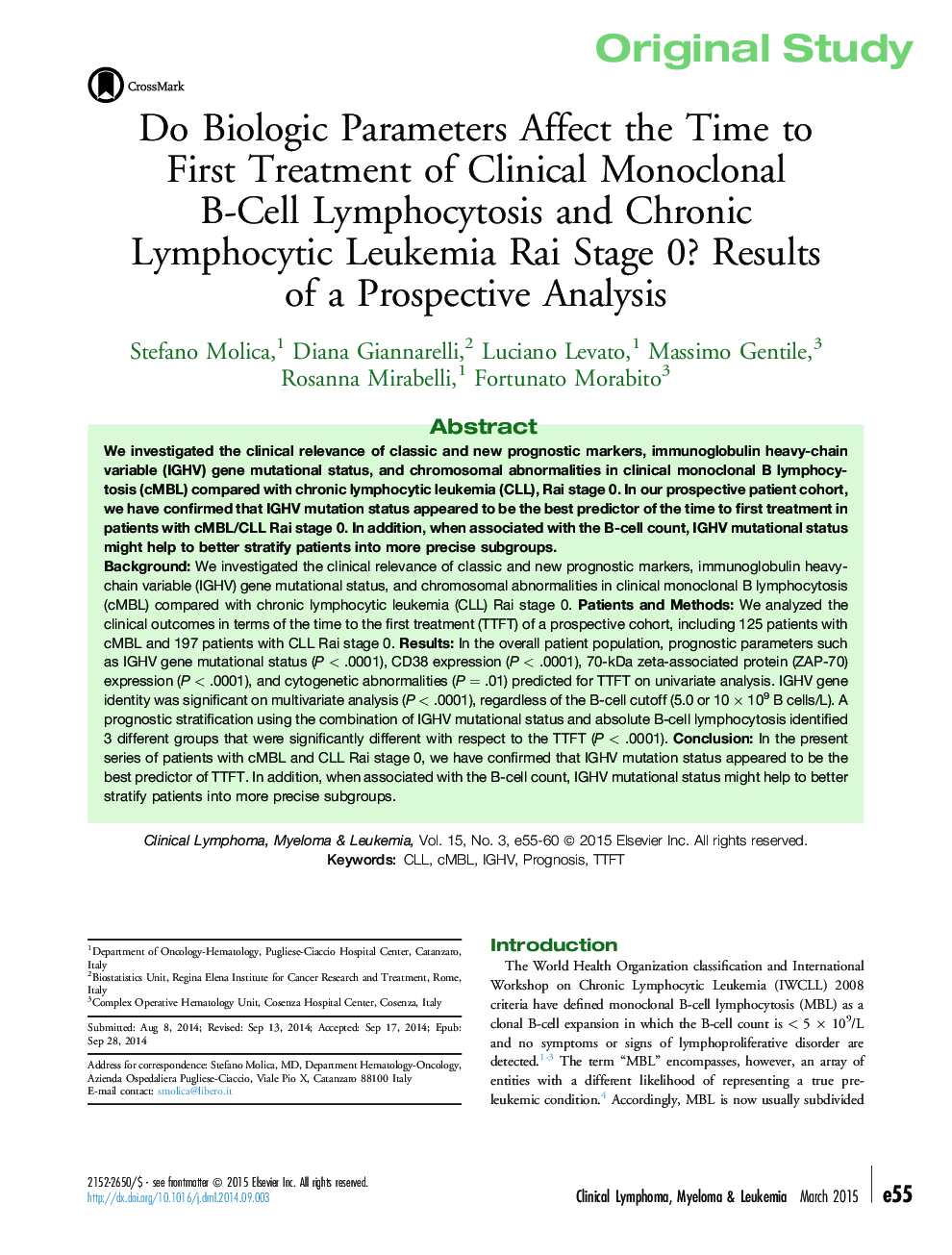| Article ID | Journal | Published Year | Pages | File Type |
|---|---|---|---|---|
| 2754267 | Clinical Lymphoma Myeloma and Leukemia | 2015 | 6 Pages |
BackgroundWe investigated the clinical relevance of classic and new prognostic markers, immunoglobulin heavy-chain variable (IGHV) gene mutational status, and chromosomal abnormalities in clinical monoclonal B lymphocytosis (cMBL) compared with chronic lymphocytic leukemia (CLL) Rai stage 0.Patients and MethodsWe analyzed the clinical outcomes in terms of the time to the first treatment (TTFT) of a prospective cohort, including 125 patients with cMBL and 197 patients with CLL Rai stage 0.ResultsIn the overall patient population, prognostic parameters such as IGHV gene mutational status (P < .0001), CD38 expression (P < .0001), 70-kDa zeta-associated protein (ZAP-70) expression (P < .0001), and cytogenetic abnormalities (P = .01) predicted for TTFT on univariate analysis. IGHV gene identity was significant on multivariate analysis (P < .0001), regardless of the B-cell cutoff (5.0 or 10 × 109 B cells/L). A prognostic stratification using the combination of IGHV mutational status and absolute B-cell lymphocytosis identified 3 different groups that were significantly different with respect to the TTFT (P < .0001).ConclusionIn the present series of patients with cMBL and CLL Rai stage 0, we have confirmed that IGHV mutation status appeared to be the best predictor of TTFT. In addition, when associated with the B-cell count, IGHV mutational status might help to better stratify patients into more precise subgroups.
